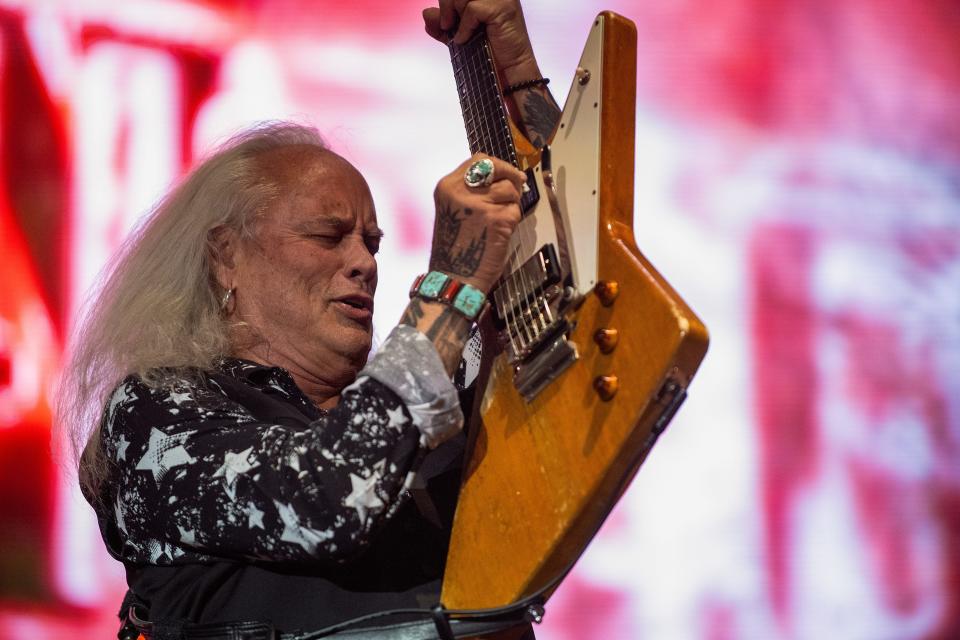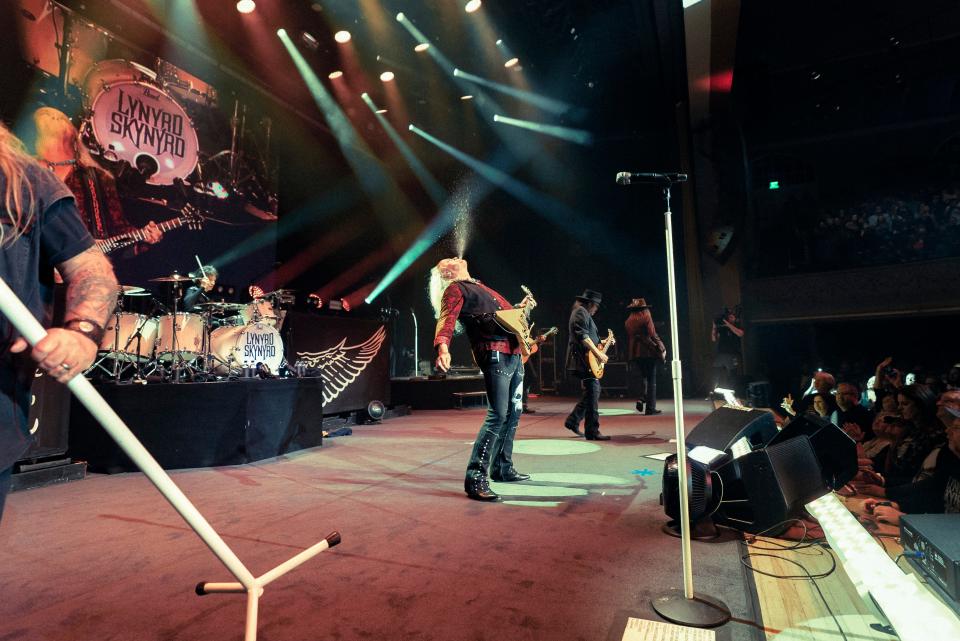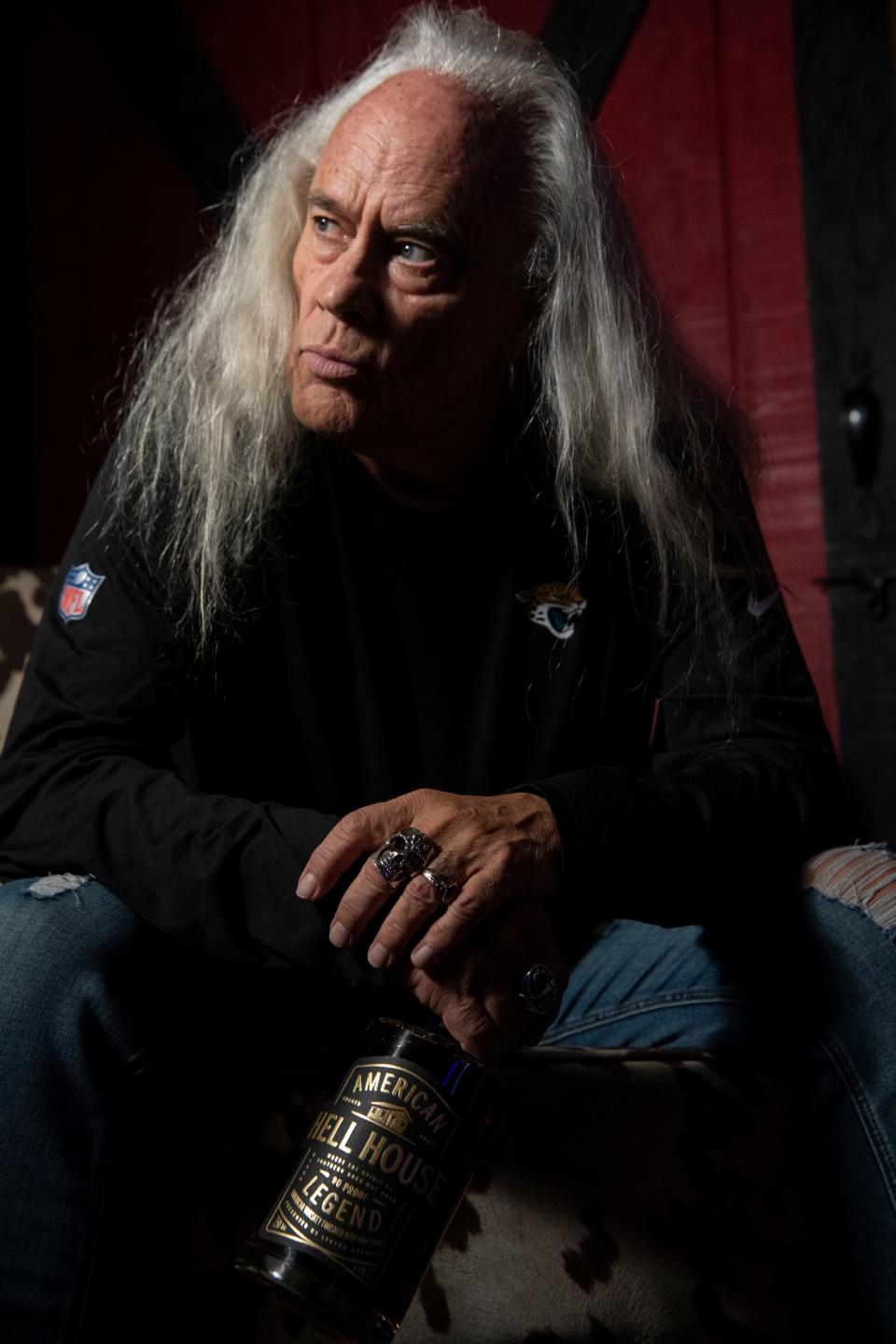Q&A: Lynyrd Skynyrd's Rickey Medlocke on spending a life in music
For Rickey Medlocke, music has always been in his blood, something he knew he'd always want to do.
The Lynyrd Skynyrd guitarist, 74, grew up in Jacksonville, Florida.
Lynyrd Skynyrd formed originally as My Backyard, with Ronnie Van Zant, Bob Burns and Gary Rossington. Before long, with the addition of Allen Collins, Larry Junstrom, Leon Wilkenson, Billy Powell, and Ed King, Lynyrd Skynyrd was born after several name changes in 1969. Artimus Pyle and Steve Gaines replaced Burns and King down the line.
At its peak, the band churned out hits such as "Sweet Home Alabama" and "Free Bird." During his first time with the band, Medlocke was featured on "One More Time," "Ain't Too Proud to Pray" and other hit singles during the 1970s.
Tragedy struck on Oct. 20, 1977, when a plane crash killed Van Zant, Steve and Cassie Gaines and the pilots and seriously injured the rest of the band.
In 1996, Medlocke got a call from Rossington to rejoin the band as lead guitarist, and the rest has been history.
The band currently consists of Rickey Medlocke, Johnny Van Zant, Michael Cartellone, Mark Mark Matejka, Peter Keys, Keith Christopher and Damon Johnson.

The Courier & Press spoke with Medlocke ahead of the Lynyrd Skynrd and ZZ Top concert Friday at 7 p.m. at Ford Center.
What made you go into music?
I was born and raised in a music family. So music is all I've ever done in my life. My grandfather played professionally and I was raised with my grandparents. He was the one that really got me into the music itself. Between my grandfather, my mother who sang and played, and my uncles who sang and played, it was kind of in the family.
And at an early age in my life, my grandfather taught me how to play a five-string banjo at 3 years old. I had a miniature five-string banjo and I even appeared on a TV show with them that originated out of Jacksonville called "The Toby Dowdy Show." And I was on there with him for five years from 3 years old to 8 years old. In that time, I learned how to play guitar at 5, took up playing drums at 8, and select other instruments that along the way that I wanted to play.
I'm still in music and it's been my life. I love the art of playing and the art of music. I love the art of writing music and seeing it come to light. Music has always been my it's been my thing and has saved my life many times. And I guess that's what I'll do till the bus comes to a stop and I have to get off that bus.

Identifying as Native American, How does your culture play an aspect in your music?
I'm over half-Native, probably anywhere from two-thirds to three-quarters that comes from my biological father and mother. The other part of me is Scottish and English. I'm a mixed bag of tricks and like to refer to myself as a mongrel as I have some interesting traits on both sides.
So native culture has always been very important to me and I'm proud of my blood. I'm very outspoken about Native issues, and different things that go on with natives. Recently, I've been doing a project that's all dedicated to bringing awareness to the missing and murdered indigenous women's movement. I just released a song where part of the proceeds from the song "Never Run Out of Road" go to three different charities.
Growing up in Jacksonville, Florida, how did growing up there play into your music and what you represent in the musical world?
Being from the South, we came from a time when blues and country were the big influence down where we were. And as far as Skynyrd, each of the guys in the band took their influences from English artists. As far as myself, I loved a lot of English artists starting all the way back to the Beatles, The Rolling Stones, and so on. We all really loved a lot of different artists like Eric Clapton, Jimi Hendrix, Jimmy Page, Jeff Beck, Paul Rogers, and more who became popular in England and Europe before coming back to the U.S.
In developing our own thing over here, you mix all that up into one and you're able to write these original tunes that were defined as being original because it was the original sound and the way they wrote originality. A lot of bands from the south were able to break the ice and show you what we were all about.
Since your start, how do you feel that music has evolved?
Looking back, with there only being seven chords to music, you realize that every song that could be written now has been written. Back when we started writing songs and doing music, it was all virgin territory. You could come up with songs and be original to put that out there and people would be in awe of the original band or sound.
Now you listen to bands or artists and you can go through the songs and probably pick out a few songs that the song reminds you of. Because those artists are taking their influences from other artists and come up with their own thing. Whether it be pop, hip-hop, country, or rock, you can hear a lot of great tunes within those songs.

After having a long career in the field, what are some of your favorite moments from touring and your career?
I remember always wanting to play the Royal Albert Hall in London and we finally did it. And even after "Free Bird" was over, I didn't want to leave the stage. I just kept looking up at it like, "I finally got to do it." Another incredible moment was when I first came back with the band and the very first night that I walked out I realized I was home with a family that I had missed for a long time. This whole thing for me has been really, really heartfelt and very special to me. I'm a loyal guy, to the music and the band.
If a lot of older bands can tour, so can we. I think we have a lot more energy than a lot of bands, we have no recorded instruments and really play all of our instruments. When we step out there, we take 110% energy, give it to the audience and they give it back. I am non-stop on that stage and I love the art of performing. Our energy comes from loving music and loving to deliberately love to play it.
What advice do you have for younger rockers or kids that want to get into rock?
My advice would be to write great songs that become memorable and become iconic. Get with a writer or writers, get with bands, and come up with greatness and great songs. Because great songs are never ending ? they live for a lifetime. If you think about what I've been involved in with two different bands, I've got songs that I've been involved with that will be here long after I'm gone. So go out and make greatness in songs.
This article originally appeared on Evansville Courier & Press: Q&A: Lynyrd Skynyrd's Rickey Medlocke on spending a life in music
